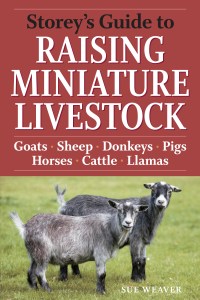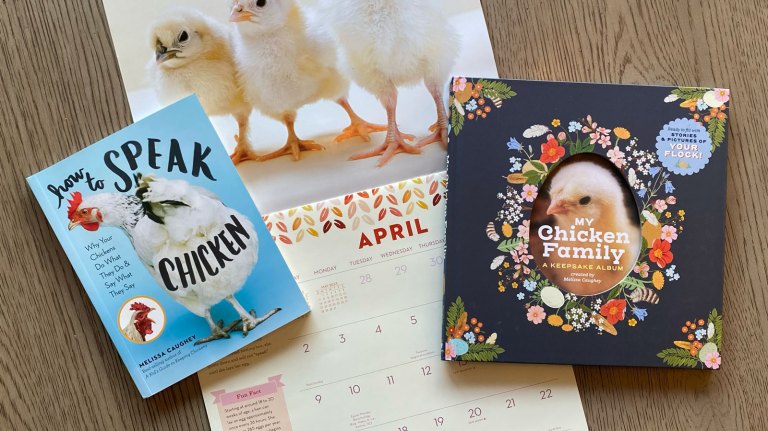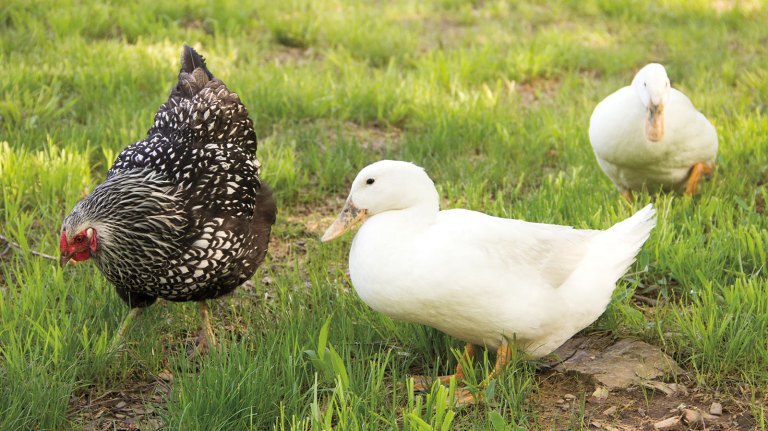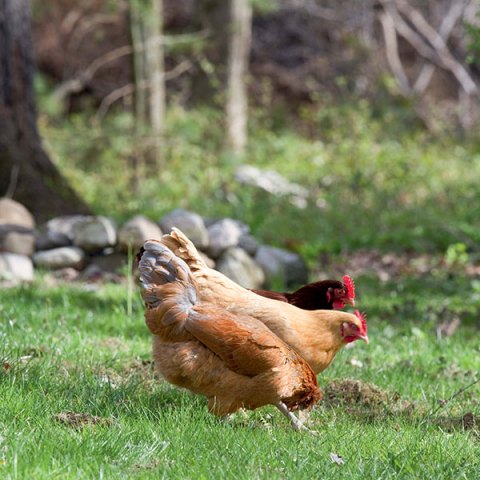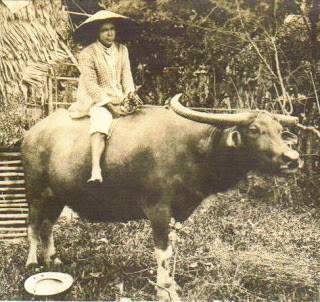Sue Weaver: Traveling with Goats
“My favorite topic: goats!”
Earlier this week, I asked our blog readers if they had any animal or livestock questions that Sue could help out with in the post Sue Weaver, Livestock and Animal Expert, Will Answer Your Questions.
One of our blog readers asked: “I am moving from the West Coast to the East Coast and am (of course) bringing my four pygmy goats with me. They are still kids—about four months old. I will be transporting them in the back of my SUV. Do you have any tips on traveling with goats? I know goats hate change, and I am very worried that stress from the trip will make them sick. Is it better to do the road trip as quickly as possible, or is it better to stop midway for a few days or even a week to let them recover a little before finishing the trip? I want to do everything possible to make this a good trip for them.”
Sue answered:
“How nice that my first question-and-answer entry is about my favorite topic: goats! My husband John and I have transported goats (and sheep) under just the conditions you describe. John made one northern Indiana to Arkansas run with two Alpine kids in the back of our minivan, one from here to southern Indiana with a full-grown ram, and a trip from Ohio with a pair of lambs. And we often transport sheep and goats locally in our van rather than hook up the horse trailer or load the Goat Tote into the back of the truck.
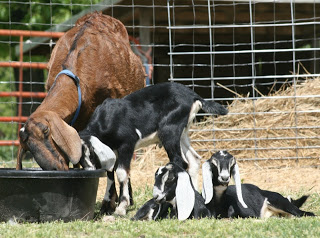
The first consideration is a safe and comfortable way to contain them. We recommend large dog crates, preferably the wire kind so that animals can keep track of one another. It’s best for each animal to have his or her own crate to keep mess at a minimum. Crate pads and folded pieces of old blankets are nice, but you might want to top them with puppy-style pee-pee pads or the sort of pads designed for bed-bound humans. Otherwise, carry plenty of extra blankets and plan Laundromat stops along the way. It’s also a good idea to place a plastic tarp under the crate area because a certain amount of spill is bound to occur.
We’ve never had a sheep or goat stressed to the point of sickness, but we always dose them with probiotic gel twice a day. There are several good brands; we like Probios. If you drive straight through, feed lightly. If you stop overnight, which we prefer, feed an hour or so before departure and again when you stop for the night. Unless you’re assured of a disease-free unloading area, keep your goats in their crates. Since they are pygmies, I’d suggest leash training them and hand-walking them in the pet areas of highway waysides rather than unloading them at fairgrounds or other venues of that nature.
They do get “sea legs” very quickly, but avoid erratic driving, especially at the start. In all, I think you’ll find that your goats adapt to travel very quickly. We haul our dairy does with their kids loose in the back of our van (with the back seat removed and a doggie-style barrier installed to keep them out of our laps) when new kids are scheduled to be disbudded. The does enjoy peering out the windows at passing motorists while their kids nap.I wish you well on your trip! If I can help in any other way, feel free to contact me through Storey. I am always happy to talk about goats.”
Do you have an animal or livestock question? Ask Sue in the comments section below.
Sue Weaver sold her first freelance article in 1969. Since then her work has appeared in major horse periodicals, including the Western Horseman, Horse Illustrated, Chronicle of the Horse, Flying Changes, Horseman’s Market, Arabian Horse Times, the Appaloosa News, the Quarter Horse Journal, Horse’N Around, and the Brayer. She has written, among other books, Storey’s Guide to Raising Miniature Livestock, The Donkey Companion, and The Backyard Goat. Sue is based in the southern Ozark Mountains in Arkansas.
Read Sue’s blog: Dreamgoat Annie
Whether you want to the make most of a small plot of land or add diversity to a large farm, raising miniature livestock can be a fun and profitable experience. With expert advice on choosing a breed that suits your needs, Sue Weaver shows you how to house, feed, and care for miniature goats, sheep, donkeys, pigs, horses, cattle, and llamas. You’ll be inspired by profiles of successful breeders as you learn everything you need to know to keep your miniature livestock healthy and productive.
